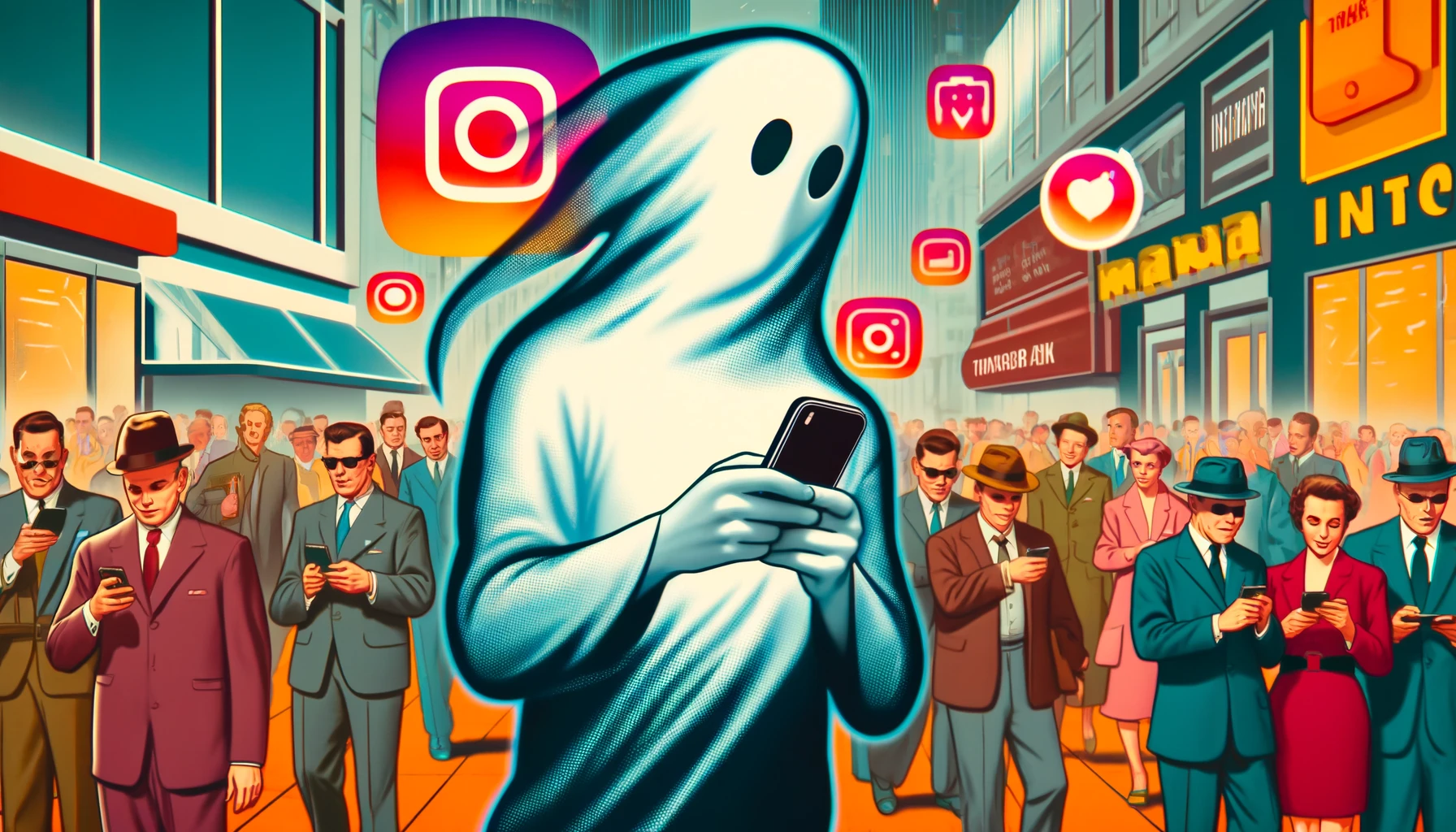

Social media is changing faster than you might think.
We used to talk about our “digital footprint” as something permanent (like a tattoo).
But there’s a growing trend among Instagram users that suggests a shift towards reclaiming privacy.
It could be that or creating a digital world that acts more like our physical world… it’s hard to tell.
Welcome to Grid Zero.
Is this a movement or a trend?
Users on Instagram are now stripping their profiles (and the grid) down to nothing, leaving behind the traditional showcases of personal milestones and daily experiences that once dominated the platform.
Why?
Many see this as a simple preference for privacy.
Said another way: There is a growing aversion to permanence and digital footprints that come from growing up in the public eye of social media (you have the parents who posted every waking moment of their kids’ existence to thank for this).
And, it has left these now-adults craving private spaces to explore and express themselves without the weight of a lasting digital record.
The move towards ephemeral content.
This isn’t just about privacy.
Twelve years ago, I wrote this (The Impermanent Internet) about about Snapchat:
“With Snapchat, users take a picture (or short video) and send it to friends via their smartphones. That’s no great innovation. What makes Snapchat interesting is that the picture (or video) can only be seen by the recipient for a couple of seconds after they have opened it. After that, poof! It’s gone (like Keyser Soze). All of the content shared on Snapchat is temporary. So, what’s the point? Young people are currently driving the growth of Snapchat (which many people see as a contender to the Instagram throne) because of that very reason. They have no need to keep this stuff on a hard drive, they’re creating content much in the same way we used to have conversations in the pre-Internet days (did you ever think of archiving your face-to-face conversations?).”
It’s also a commentary on the state of social media saturation.
The introduction of platforms like TikTok, Snapchat, and Instagram Stories has allowed for temporary posts, providing users with brief snapshots of life rather than a permanent gallery.
Adam Mosseri, Instagram’s chief, notes that the platform’s focus has shifted towards features that support fleeting interactions such as direct messages and stories, recognizing that these are the areas of most significant engagement, particularly among younger users.
For many, Grid Zero is more than a personal choice.
It’s a style and a statement.
It’s about embracing negative space and making ‘anti-brand’ the new brand.
This trend is partly a reaction against the ‘cheugy‘ – a term used by Gen Z to describe efforts that try too hard, such as meticulously curated feeds.
In this new era, the less you care about your social media presence, the cooler you seem.
Intriguingly, some users are finding creative ways to engage with Grid Zero by posting content only to quickly archive it, creating a kind of digital ‘Easter Egg’ hunt where posts are hidden treasures rather than public broadcasts.
This approach reflects a strategic use of Instagram’s functionality to maintain a presence on the platform while controlling who sees what and when.
If this picks up steam, marketers and advertisers face new challenges.
The shift towards more private and ephemeral content could lead to changes in how brands interact with potential customers on social media.
This could also mean a greater focus on real-time interactions and possibly a reevaluation of what it means to engage with consumers on social media.
If Big Tech and the government doesn’t regulate online privacy leave it to the consumers!
There is a reflection.
It’s a reflection of a broader cultural shift towards privacy and a reconsideration of the value of permanence in an increasingly ephemeral world.
Maybe we are redefining the boundaries of social media and signaling a potential shift in how all of us should engage with these platforms.
And maybe… just maybe… being known… or an influencer… or fame in general was an anomaly of social media, and we’re seeing a fresh lens through which to manage our relationships and actual friendships with one another… with technology… beyond the cult of personality and showing off our highlight reels.
This is what Jeremy White and I discussed on 640 Toronto. Listen in right here.
https://api.soundcloud.com/tracks/1810598142
Before you go… ThinkersOne is a new way for organizations to buy bite-sized and personalized thought leadership video content (live and recorded) from the best Thinkers in the world. If you’re looking to add excitement and big smarts to your meetings, corporate events, company off-sites, “lunch & learns” and beyond, check it out.
Episode #977 of Six Pixels of Separation - The ThinkersOne Podcast is now live and…
Welcome to episode #977 of Six Pixels of Separation - The ThinkersOne Podcast. Dan Heath…
Is there one link, story, picture or thought that you saw online this week that…
My brain is broken. I realized this a few months back.In trying to be informed…
Episode #976 of Six Pixels of Separation - The ThinkersOne Podcast is now live and…
Welcome to episode #976 of Six Pixels of Separation - The ThinkersOne Podcast. Jennifer Moss…
This website uses cookies.